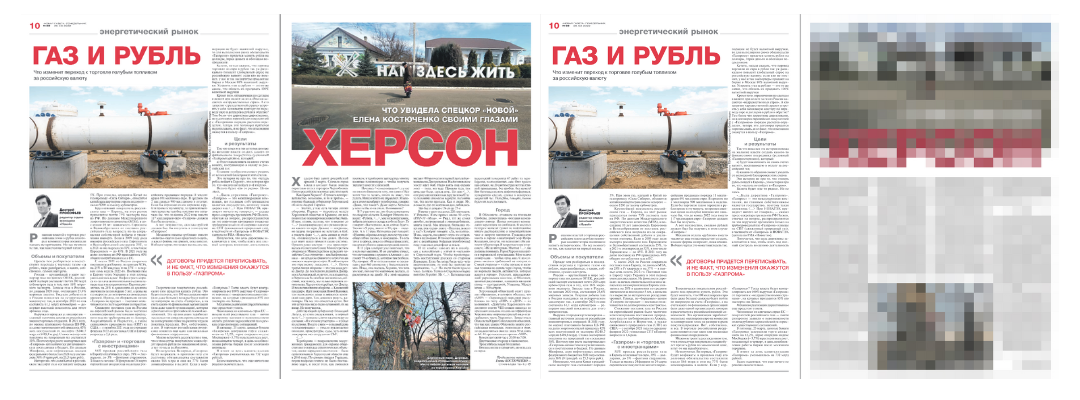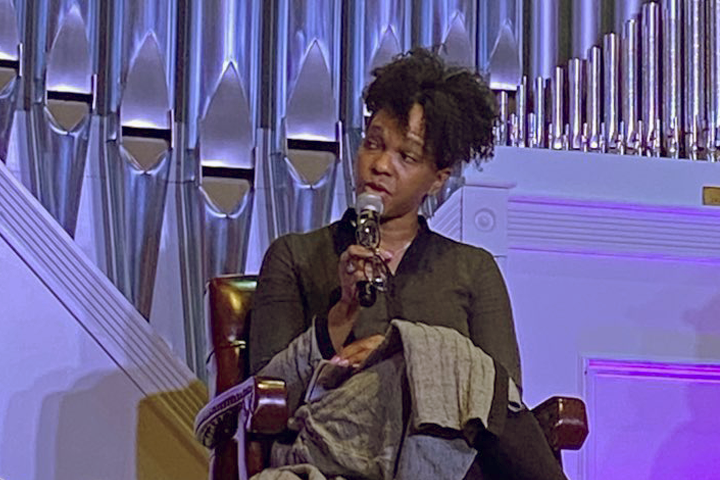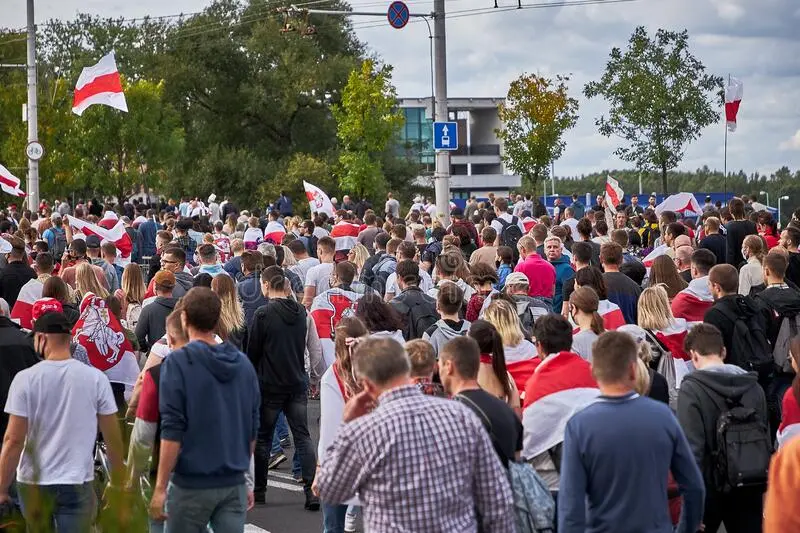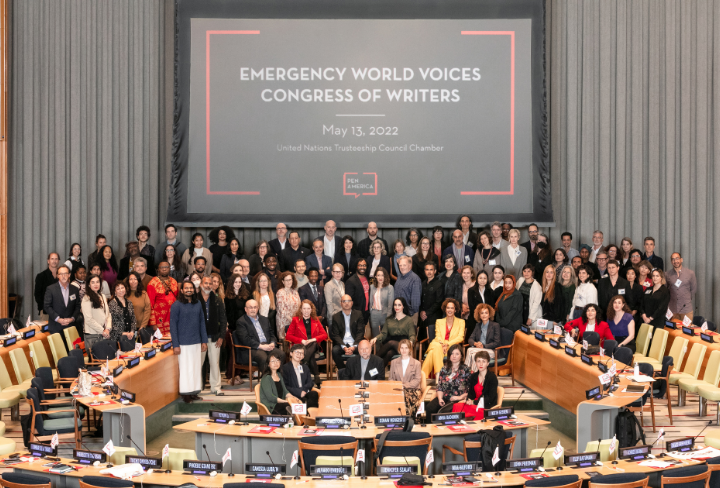‘For Future Justice’: Russian Independent Media Archive Preserves More Than Two Decades of History

TV Rain reporter Anna Nemzer was on a trip abroad from her home in Moscow with only two small suitcases when Russia invaded Ukraine.
As a reporter covering the run-up to war, she knew it was coming. “But when it really happens, and when they start bombing Kyiv, you just can’t believe it,” she said.
A few days later, Russian police arrived at the TV Rain office. The special forces had been known to storm the offices of media outlets, using violence and destroying equipment. Nemzer’s colleagues fled the country overnight, buying tickets in any direction they could find. TV Rain, the last independent television station in Russia, was taken off the air, its website blocked.
Nemzer continued to broadcast on YouTube from her hotel room in Tel Aviv, and her colleagues eventually regrouped in Riga, Tbilisi and Amsterdam. But Nemzer never returned home. She knows if she did, she could face up to 15 years in prison under President Vladimir Putin’s laws that punish any journalist who disseminates what he considers “fake” news about the war.

Anna Nemzer is working to preserve the archive of independent Russian media.
In the months leading up to and immediately after the Russian invasion of Ukraine in February 2022, similar scenes played out across Russia as Putin snuffed out the last of press freedom. Other independent news outlets came under pressure, closing with their journalists dispersing into exile.
Now, Nemzer is working to preserve more than two decades of work by these reporters and editors whose newspapers, websites, magazines and television stations operated independently of the government – and no longer exist. The new Russian Independent Media Archive, a project of PEN America developed in partnership with Bard College, launched this month with more than half a million articles from 13 news organizations. The goal is to recover and offer safekeeping for the work of 70-plus news outlets.
“Journalists say their work is the ‘first draft of history. My fear was – and remains – that in Russia, this draft is being deleted.”
For Nemzer and her colleagues, the process has required encrypted messaging, “burner” phones and even smuggling messages into prison to reach a journalist detained for their work.
“Sometimes I’m really feeling like I’m in a spy movie or something,” Nemzer said.
The initiative was spurred by a conversation shortly after the invasion between two PEN America trustees — writer and Russia expert Masha Gessen and Peter Barbey, whose background in publishing instilled an understanding of the value of archiving.

This issue of Novaya Gazeta (left) is still online, but with blurrings (right) made because of censorship about the war. Novaya Gazeta is one of the independent outlets whose history is preserved in the Russian Independent Media Archive.
“Journalists say their work is the ‘first draft of history,’” Gessen said. “My fear was – and remains – that in Russia, this draft is being deleted. With Vladimir Putin having forced independent media to close or flee Russia, we need to prevent the journalistic record of recent Russian history from vanishing. We know from the three decades of painstaking work by historians and archivists— who are only beginning to fill in the story of the Soviet period— just how hard the historical record is to restore.”
Nemzer likens the journalistic work she’s preserving to “several Watergates.” Some of that was recognized this year with an Oscar for the documentary Navalny, about Alexey Navalny, the imprisoned opposition leader who duped a Russian operative into explaining how he had poisoned Navalny. Other work preserved investigates what happened with the hostages in Beslan – where crimes were uncovered, but never prosecuted.
Before the war, Nemzer said working as a journalist was “like being suffocated, but step by step, step by step. They were making boundaries and borders and these horrible laws. And they were making our life impossible, step by step.”
TV Rain had been blocked by cable operators before the occupation of Crimea in 2014. Advertisers canceled all their contracts, and the station was evicted from its office in Moscow. The broadcasters persevered using a subscription model, but they knew they were reaching a small group of like minded people – shrinking their audience from millions to thousands. At the same time, Putin could point to the network to say independent media still existed in Russia.
Some online media was blocked only within Russia’s borders, while other publications were “killed properly,” with no record of the work, Nemzer says. Creating this new repository for the journalism they produced has been like “reanimating the bodies.”
Dru Menaker, chief operating officer at PEN America and herself a former foreign correspondent posted in Moscow, calls the project a “digital ark” for the work of independent journalists under the reign of Putin.
“Brave, determined independent journalists have worked against constraints on press freedom and free expression, and their works must be preserved if we are to understand Russia’s present and serve its future,” she said.
Before the war, Nemzer said working as a journalist was “like being
suffocated, but step by step, step by step.”
Nemzer does not know what people inside Russia are hearing now. Her hope is that people from other countries will gain insight from the Russian Independent Media Archive into authoritarian regimes – and learn that dictatorships are not isolated and won’t stay within their borders.
She has no illusions about changing the trajectory of the war. She fears the war in Ukraine will be like the one in Chechnya, so drawn out that people get “used” to it. And although she says deep inside, she has no hope, she has “double thinking” that allows her to imagine some form of justice.
“At this point, it’s for future history,” Nemzer said. “The editors of different media outlets are being arrested and working in exile, and I can’t help them, but I can help save their work, because these are testimonies, these are evidence, these are histories for future justice.”
Lisa Tolin is editorial director of PEN America.












